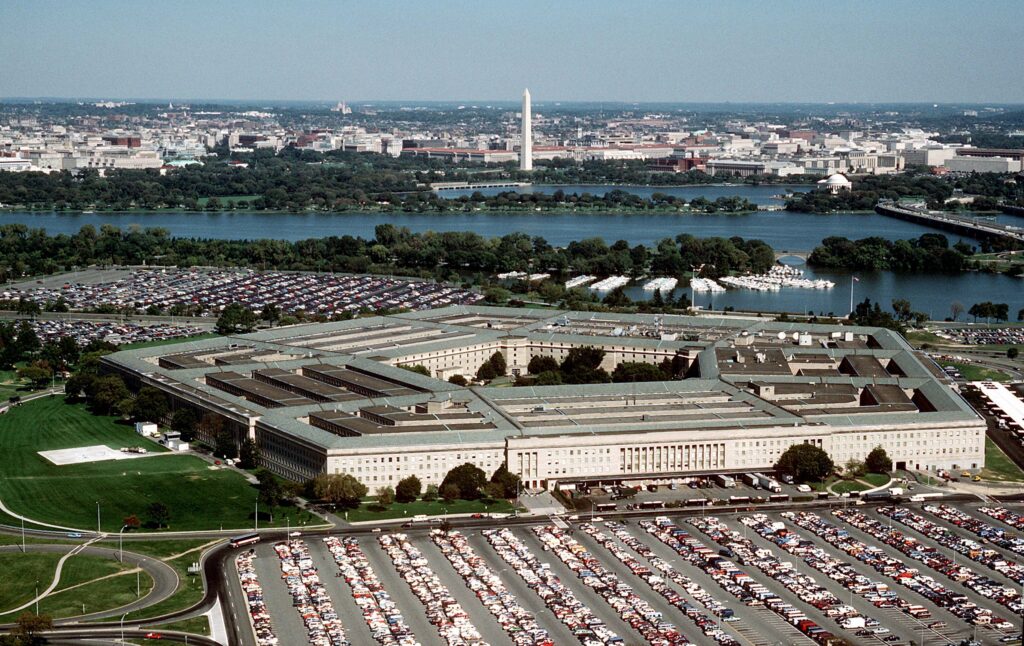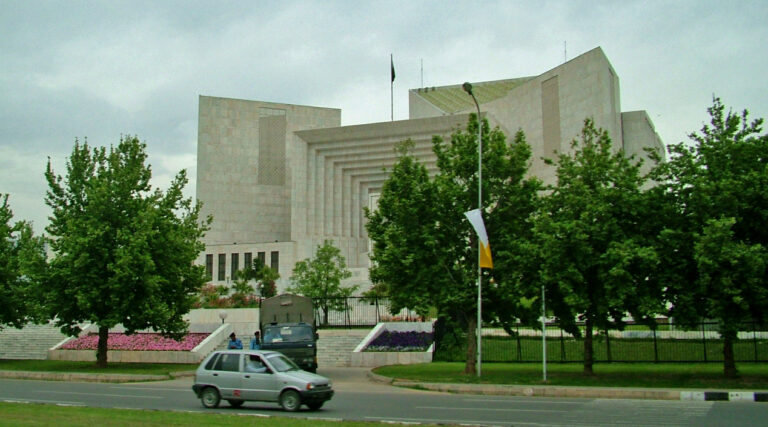
In Defense of Defense
David Little
United States Department of Defense Building (US-PD).
The executive order of President Trump to turn the Department of Defense into the Department of War is profoundly ominous. Especially when combined with the president’s desire to eliminate the United States Institute of Peace, thereby discouraging a search for alternatives to war, and to portray the U.S. military as “ruthless,” as both he and Secretary of War Hegseth did at the gathering of top military officials on September 30, the order recalls a time when brute force was adored and crude power exercised, a time when the practice of cruelty was widely tolerated among nations.
What was known as the Department of War became the Department of Defense in 1949 as the result of the need of the United States after World War II to coordinate expanding forms of military service in accord with a radically revised understanding of the international use of force. Prior to the mid-twentieth century and the campaign to outlaw war except under limited conditions, “powerful states freely resorted to war to enforce their claims, and weaker states were forced to submit or risk annihilation, yielding a near-constant churn of conflict. With no prohibition on conquest, national borders shifted regularly through violence, and empires expanded by force, entrenching global inequalities,” (84) as international law scholars Oona Hathaway and Scott J. Schapiro have recently argued.
World War II was the result of the imperial ambitions of the three “Axis powers”– Germany, Italy, and Japan. Each, in its own way, sought foreign domination by means of the unrestricted exercise of military conquest. Just how lawless and harmful was the use of force by other “powerful states,” like Great Britain, is, to be sure, more controversial. Scholars like Niall Ferguson and Nigel Biggar acknowledge some costs in abuse and mistreatment, but conclude the game was worth the candle.
“No one would claim that the record of the British Empire was unblemished,” writes Ferguson in his book Empire: How Britain Made the Modern World. It engaged for a time in slavery (later abolished) and in the ethnic cleansing of indigenous peoples, but in the nineteenth century it “undeniably pioneered free trade, free capital movements and…free labour” and “spread the rule of law over vast areas.” And while the British may have “fought many small wars” in South Africa, Sudan and elsewhere which, Ferguson concedes, involved considerable “overkill,” they nevertheless “maintained a global peace unmatched before or since” (366-67).
Biggar strikes a similar tone. In one chapter of his book Colonialism: A Moral Reckoning (ch 8), he evaluates six cases of the use of force by the British government, including the Boer War, the massacre at Amritsar in Punjab, and the Mau Mau Rebellion in Kenya. All six are, he admits, either blatantly unjust or, at best, marginally just, but are still all excusable for reasons such as the following. None of cases was as bad as examples of more terrifying practice perpetrated by the Chinese Communists or the Nazis. Also, British troops “used aggressive methods of interrogation that would now be classified as ‘torture’ or ‘inhuman and degrading treatment’, but were not clearly so then” (330-31). Additionally, Biggar points to “the disquieting truth that successful counter-insurgency against guerrillas almost invariably necessitates harsh measures that put civilians at risk” thereby disallowing law-of-war prohibitions against intentionally targeting civilians or using more force than is necessary to destroy a duly important military installation (322). Overall, Biggar, like Ferguson, reckons that derelictions like these, to the degree they are such, are the price to be paid for the benefits of empire.
In Legacy of Empire: A History of the British Empire, Caroline Elkins tells a different and rather more convincing story of the “Empire’s bloody toll” (191). On Elkins’ account, “liberal imperialism,” which inspired the entire colonial enterprise in Ireland, South Africa, Palestine, India, Kenya, and elsewhere, contains a deeply sinister element. In the name of a civilizing mission whereby millions of colonized people would eventually come to enjoy independence along with social, economic, and political advantages, the British government claimed wide-ranging, untrammeled authority in enforcing its rule, embracing a policy, Elkins notes, of what J.S. Mill called “paternalistic despotism”(51). Far from consistently advancing the rule of law throughout the colonies, it regularly and extensively did the opposite by adopting “penal codes, restrictive regulations, and [by assuming] the ability to declare martial law or a state of emergency” that led to extensive mistreatment and abuse, and that “suppressed challenges to British rule” (65-66).
Elkins makes two points in regard to violations of the rule of law. First, she claims that it was the widespread practice of colonial authorities to invoke British law as a “fig leaf that justified continued political imprisonments, harsh crackdowns, and minimal accountability in…India and beyond” (144), behavior she labels “legalized lawlessness” (Chapter 3). She has been rightly criticized for the phrase (Benton, “Evil Empires? 194), but the criticism is that Elkins overlooks the fact that the appeal to the rule of law, however bogus, was nevertheless important for serving as a basis for protest and for holding the government to account on the part of abused colonial subjects. It is not that Elkins misrepresents widespread deviations from the law by the authorities.
Second, Elkins provides a consistent record of persistent official resistance to promulgating, let alone applying, postwar human rights and humanitarian standards to their treatment of colonized peoples. “There was no feeling of embarrassment at the incongruity” between affirming the new standards and “refus[ing] to recognize them as a source of legal obligation” for governing the colonies (482-83).
British colonial officials were consoled by the existence of Article 15 of the European Convention of Human Rights (made effective in 1953), which permits the suspension of certain articles under conditions of emergency. However, in governing Kenya, for example, British officials refused to acknowledge that the prohibition of torture and “inhuman and degrading treatment or punishment” might not be suspended under any conditions. Elkins’ description of concerted opposition by colonial authorities to submitting to new international standards is abundantly confirmed in Decolonization and the Evolution of International Human Rights by Roland Burke.
Against this background, the central purpose of the UN Charter, adopted in 1945 by the international community, was “to save succeeding generations from the scourge of war” by reconceiving the use of force as a bulwark of collective defense against wars of aggression and conquest. It was left to the Security Council to “determine the existence of any threat to the peace, breach of peace, or act of aggression” as the basis for authorizing force, permitting member states, individually or collectively, to initiate a use of force only as an exercise of the “inherent” right of self-defense against an “armed attack,” according to Article 51.
The moral impulse to limit force to self-defense is age-old and widely affirmed across cultures and traditions. It was enunciated in the seventeenth century as the only justifiable cause for war, but two catastrophic world wars and the painful experience of colonialism were required before it became the cardinal principle of the international law of war.
The key idea is that defensive force—conditioned by the principles of necessity, imminence, proportionality, and right intent—is the polar opposite of what it protects against, namely force that is initiated before all nonviolent means of resolving conflict have been exhausted, that is indifferent to the resulting death and injury of innocent victims, and that is animated by a spirit of revenge or malice. One scholar concludes that “traditions all have in common that they generally consider the person [or collective] acting in self-defense to be morally right and justified…[and] none of these traditions consider the right [of ] self-defense to be a boundless license to violence. Instead, concepts such as imminence of attack, necessity,… proportionality,… and [right] intent are invoked across very different traditions to circumscribe the parameters of legitimate defense.” (30).
As a matter of fact, the right of self-defense constitutes the central argument for the War of Independence, and is thus a founding principle of America’s use of force. “Whenever any form of Government becomes destructive of the [proper] ends [of government], it becomes the Right of the People to alter or abolish it.” The Declaration of Independence claimed patriots had done all they could to avoid war. “Such has been the patient sufferance of these Colonies, and such is now the necessity which constrains them to alter their former System of Government.”
It is this history and these imperatives President Trump ignores by seeking to rename the Department of Defense, and his recent behavior underscores his failings. He seems incapable of comprehending the relevance of the right of self-defense to the Ukraine war, and his threats of force against Canada, Greenland, and the Panama Canal, not to mention his recent authorization of unprovoked attacks on Venezuelan civilian vessels, bespeak either lack of awareness of the right or callous indifference to it.
For good reason, the name and purpose of the Department of Defense wants defending.♦

David Little is at present a research fellow at the Berkley Center for Religion, Peace, and World Affairs at Georgetown University, having served before that as Professor of the Practice in Religion and International Affairs at Harvard Divinity School, and as Senior Fellow in Religion, Ethics, and Human Rights at the United States Institute of Peace. In 2015, Cambridge University Press published Essays on Religion and Human Rights: Ground To Stand On, and a book of responses to his work by colleagues and former students: Religion and Public Policy: Human Rights, Conflict, and Ethics, ed. by Sumner B. Twiss, Marian Gh. Simion, and Rodney L. Petersen.
Recommended Citation
Little, David. “In Defense of Defense.” Canopy Forum, October 3, 2025. https://canopyforum.org/2025/10/03/in-defense-of-defense/.
Recent Posts










